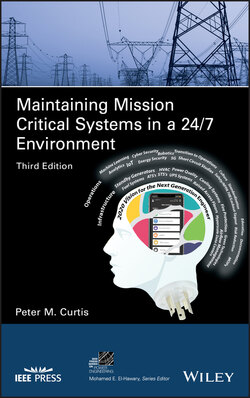Читать книгу Maintaining Mission Critical Systems in a 24/7 Environment - Peter M. Curtis - Страница 49
3.5 The Mission Critical Facilities Manager and the Importance of the Boardroom
ОглавлениеTo date, the mission critical facilities manager has not achieved high levels of prestige within the corporate world. This means that if the requirements are 24/7, forever, the mission critical facilities manager must work hard to have a voice in the boardroom. The board can then become a powerful voice that supports the facilities manager and establish a standard for managing the risks associated with older equipment or maintenance cuts. For instance, relying on a UPS system that has reached the end of its useful life, but is still deployed due to cost constraints increases the risk of failure. The facilities manager is in a unique position to advise and paint vivid scenarios to the board. Imagine incurring losses due to downtime, plus damage to the capital equipment that is keeping the Fortune 1000 company in business.
Board members understand this language: it is comparable to managing and analyzing risk in other avenues, such as whether to invest in emerging markets in unstable economies. The risk is one and the same; the loss is measured in the bottom line.
The facilities engineering department should be run and evaluated just like any other business line; it should show a profit. But instead of increased revenue, the business line shows increased uptime, which can be equated monetarily, plus far less risk. It is imperative that the facilities engineering department be given the tools and the human resources necessary to implement the correct preventative maintenance training, and document management requirements, with the support of all company business lines.
